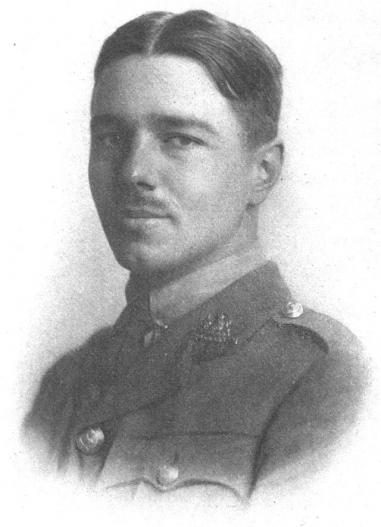I was compelled last week to reach out to Sydney Lea––Vermont’s current Poet Laureate––as three short essays of his, “Surviving Romance,” appeared in the spring issue of Traveltainted (Turtle Point Press) and were so beautifully rendered, I was moved to get his contact information and lavish praise. Upon receiving my short note, Mr. Lea’s gracious reply was almost as memorable as the essays themselves, and I made a mental note that the next time a piece of literature, or any art for that matter, is similarly affecting and access to its creator within bounds, I should not hesitate: if you feel something, say something.
Wanting to give back something to Mr. Lea, I forwarded Wilfred Owen’s, “The Last Laugh,” the Poetry Foundation’s ‘Poem of the Day’ from a few weeks ago, saying how utterly swept I was and remain by the poem. Mr. Lea was quick to respond, saying how brilliant a poet Wilfred Owen was, and just as quick to suggest that I “look up ‘Dulce et Decorum Est’ by Owen to have your heart broken.” “Dulce et Decorum Est is considered to be the best known poem among World War I poetry; a poem I should have known and read, but didn’t and hadn’t (‘Embarrassment of the Day’).
And the question immediately surfaced: could my heart break more than it was broken by the reading of “The Last Laugh?” Here are the two poems:
The Last Laugh
BY WILFRED OWEN
'O Jesus Christ! I'm hit,' he said; and died.
Whether he vainly cursed, or prayed indeed,
The Bullets chirped—In vain! vain! vain!
Machine-guns chuckled,—Tut-tut! Tut-tut!
And the Big Gun guffawed.
Another sighed,—'O Mother, mother! Dad!'
Then smiled, at nothing, childlike, being dead.
And the lofty Shrapnel-cloud
Leisurely gestured,—Fool!
And the falling splinters tittered.
'My Love!' one moaned. Love-languid seemed his mood,
Till, slowly lowered, his whole face kissed the mud.
And the Bayonets' long teeth grinned;
Rabbles of Shells hooted and groaned;
And the Gas hissed.
Dulce Et Decorum Est
BY WILFRED OWEN
Bent double, like old beggars under sacks,
Knock-kneed, coughing like hags, we cursed through sludge,
Till on the haunting flares we turned our backs
And towards our distant rest began to trudge.
Men marched asleep. Many had lost their boots
But limped on, blood-shod. All went lame; all blind;
Drunk with fatigue; deaf even to the hoots
Of disappointed shells that dropped behind.
GAS! Gas! Quick, boys!-- An ecstasy of fumbling,
Fitting the clumsy helmets just in time;
But someone still was yelling out and stumbling
And floundering like a man in fire or lime.--
Dim, through the misty panes and thick green light
As under a green sea, I saw him drowning.
In all my dreams, before my helpless sight,
He plunges at me, guttering, choking, drowning.
If in some smothering dreams you too could pace
Behind the wagon that we flung him in,
And watch the white eyes writhing in his face,
His hanging face, like a devil's sick of sin;
If you could hear, at every jolt, the blood
Come gargling from the froth-corrupted lungs,
Obscene as cancer, bitter as the cud
Of vile, incurable sores on innocent tongues,--
My friend, you would not tell with such high zest
To children ardent for some desperate glory,
The old Lie: Dulce et decorum est
Pro patria mori.
Indeed, both poems are devastating. Now, if I may, I'd like to dredge up the old Anne Sexton vs. Sylvia Plath debate (which for some, yes, is not a debate). In this debate, let me say that I am firmly in the Plath camp. But if “The Last Laugh” is Owen as Sexton and “Dulce…” is Owen as Plath, as stretched and forced this comparison may be, “The Last Laugh” has my vote.
Original blog from The Best American Poetry, April 2, 2014.
Howard Altmann's second poetry collection, "In This House," was published by Turtle Point Press in 2010. His poems have appeared in Little Star, Poetry, Slate, The Yale Review and elsewhere. A Montreal native, he lives in New York City. Howard was featured in North American Review's issue 299.2, Spring 2014.
Portrait: http://en.wikipedia.org/wiki/Wilfred_Owen#mediaviewer/File:Wilfred_Owen_plate_from_Poems_(1920).jpg



